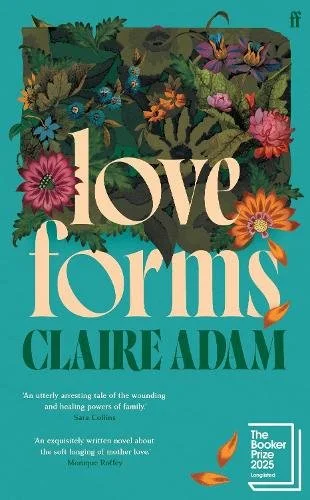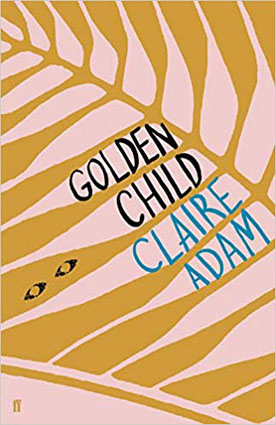Dawn is a middle aged woman who was born and raised in Trinidad but has spent her entire adult life living in England. When she was a teenager she gave up her newborn daughter for adoption. Now she's been contacted by a woman who claims to be her lost daughter. This story is an account of her life and the search for the daughter she's never known. I read this novel with my online book club and there were very mixed responses from different members. Some found it very emotional to read and others felt it fell flat. Personally, I did find the story emotionally involving – especially Dawn's harrowing experience when she was only 16 being smuggled into Venezuela to give birth in secret and the very poignant end of the novel. To me these events set the tone of the book so that all the details she relates about her life in between (from mundane observations to poignant memories) have an emotional charge to them where Dawn is trying to set the record straight about her past/identity and reconcile the trauma and loss she experienced as a teenager. The time she spends late at night looking through her ipad to look at maps of Venezuela and copy pictures of women who might look like her daughter show her deep yearning for connection and understanding. I also found it very powerful how she imagines different forms her daughter's life might have taken and potential conversations they might have. While the story is obviously set within a specific context I think it prompts self reflections about an individual's relationship to their parents or child (if they are a parent.)
I found it interesting how Claire Adam stated in an interview that the yearning a mother and child have to be together (even if they've never met) seems to “defy rational explanation”. I enjoyed how the story steadily explores this question probing how the connection might be instinctual, biological, emotional or a combination of these. Is this bond imagined or real? There's the immediate tension throughout this tale about whether or not the woman in Italy who has contacted Dawn is her daughter or not. But apart from the genetic answer to this question there is obviously a longing for a mother/daughter relationship which never occurred and it's poignant how the story explores the dynamics of this. I appreciated the way the novel questions the meaning and role of parenthood – especially how family can take on different forms – especially if certain family members have been (potentially) irretrievably lost.
I'd say the story takes quite a leisurely pace as it moves backwards and forwards between Dawn's present and the past. Not all of the details may seem entirely relevant but it came across to me like Dawn was trying to compose a memoir or portrait of her own life so her lost daughter can understand her. So her way of explaining aspect of Trinidadian ways of speaking and mannerisms felt intended to help her daughter understand what life is like in the country of Dawn's birth because her unknown daughter has probably never visited it and isn't familiar with the culture. Similarly, Dawn explains the workings and lifestyle of Britain and London where she's made her home for her entire adult life. Personally, I enjoyed mentions of a number of south London locations I'm familiar with since I've also lived in these areas for my entire adult life. It also felt like this surplus of detail and Dawn's manner of explaining things was also a way for her to affirm her own sense of identity since she has lived away from her homeland for so long. I certainly feel this myself as an expat. Nevertheless, the story does seem to drag a bit and becomes a little too meandering in the middle.
I felt one of the most striking sections of the novel was when Dawn confronts her father trying to explain why she longs to reconnect with her unknown daughter and holding him to account for putting her in such a terrifying/dangerous situation when she was pregnant at 16. The “You were the lion” line packs quite a punch! But I like how this is further complicated as we learn things which have been hidden about her father's past. While the father's attitude toward Dawn is undoubtably influenced by a patriarchal sense regarding the stigma and class shame about an unwed pregnant daughter, it shows how he might have also been motivated by a sense of shame about his own past and a potential suppressed longing for an unknown family connection. It partly shows why he is so motivated to consign children given up for adoption to the past and focus purely on the present and the family formed within the sanctity of marriage and the “legitimate” children who are socially accepted. Alternatively, Dawn's mother softens her point of view and I found the uneasy new connection she makes with her to be very poignant. This change in her mother's stance made sense to me given the amount of time that has passed, the way social norms have changed slightly over the decades and since the father has died Dawn's mother might feel less need to side with him.
I've enjoyed thinking about this novel in comparison to some other recent fiction which differently explores parent/child relationships – especially in relation to young mothers. For instance, in “Seascraper” by Benjamin Wood, Thomas' mother became pregnant with him when she was a teenager. She had to make compromises in her life in order to care for him at a young age yet she doesn't regret her decision. In addition to parental/social pressure, Dawn was motivated to give her daughter up for adoption because she didn't want to miss out on life's opportunities. Now in her 50s she has a good life and loves her adult sons but she's not achieved her professional aspirations in being a doctor. I've found it interesting to consider to what degree compromises are an inevitable part of parenthood – regardless of whether a child is kept or given up for adoption. Another example is the recent novel “Ripeness” by Sarah Moss where the protagonist's sister gives her newborn up for adoption and is staunch in her conviction that she wants no emotional or physical connection with the baby because she is focused on her dance career. I've been mulling over these different characters and the different techniques these authors have used to explore the complicated questions surrounding parent/child connections.
Having also read Claire Adam's previous novel “Golden Child”, I think the author has a special talent for conveying complex emotions in her narratives and exploring the teeming (perhaps unanswerable) questions which induce such conflicted feelings.









